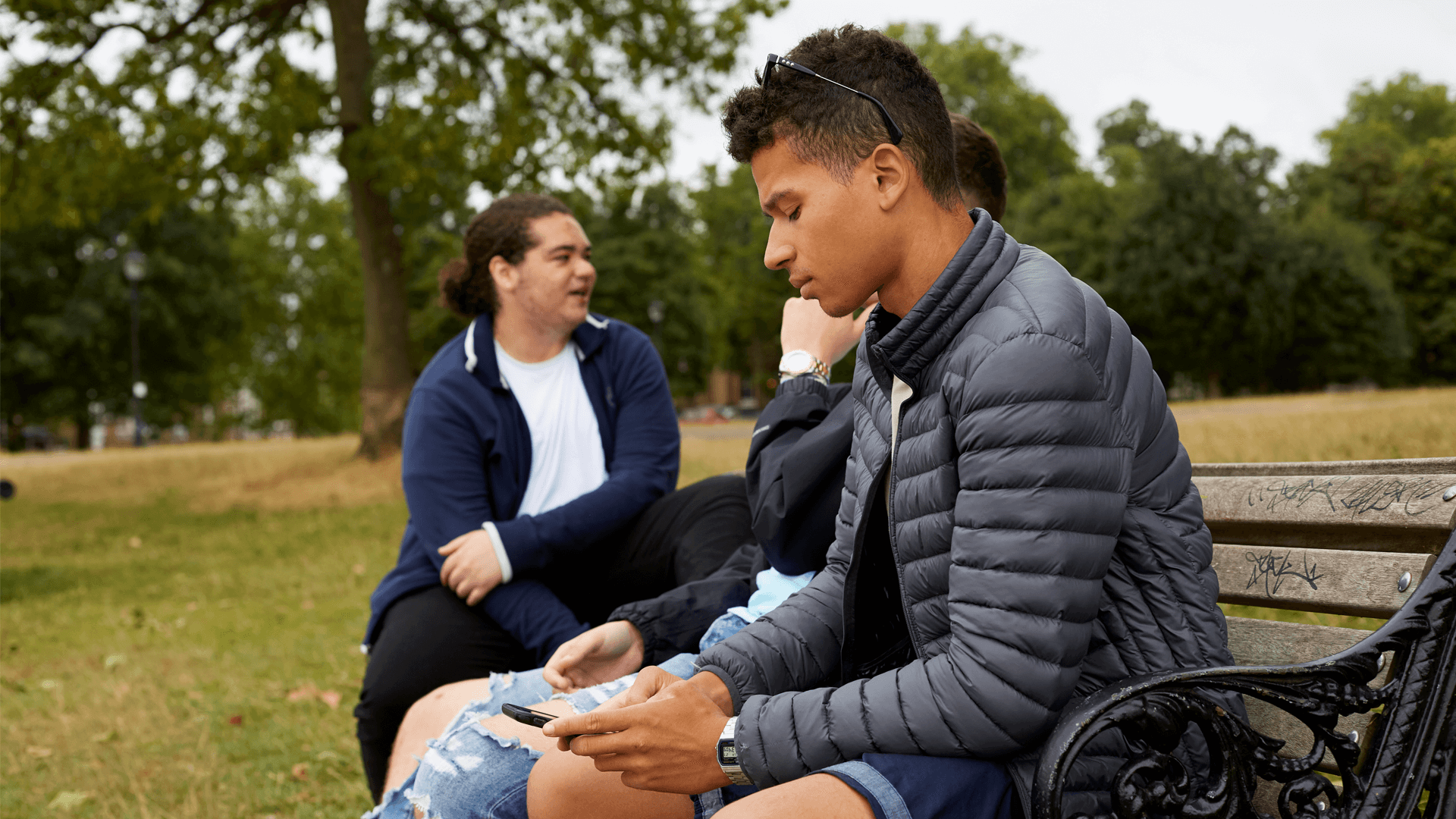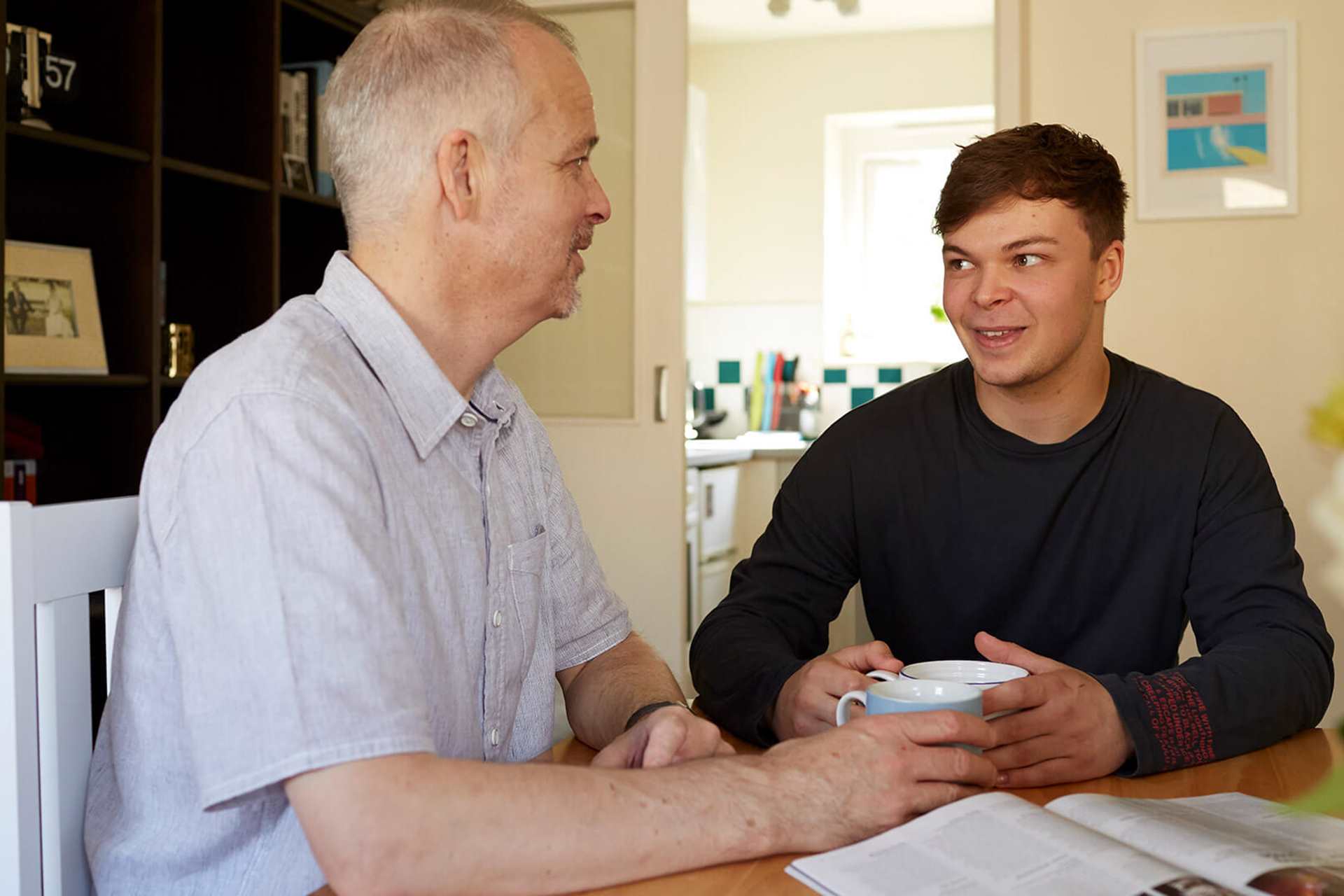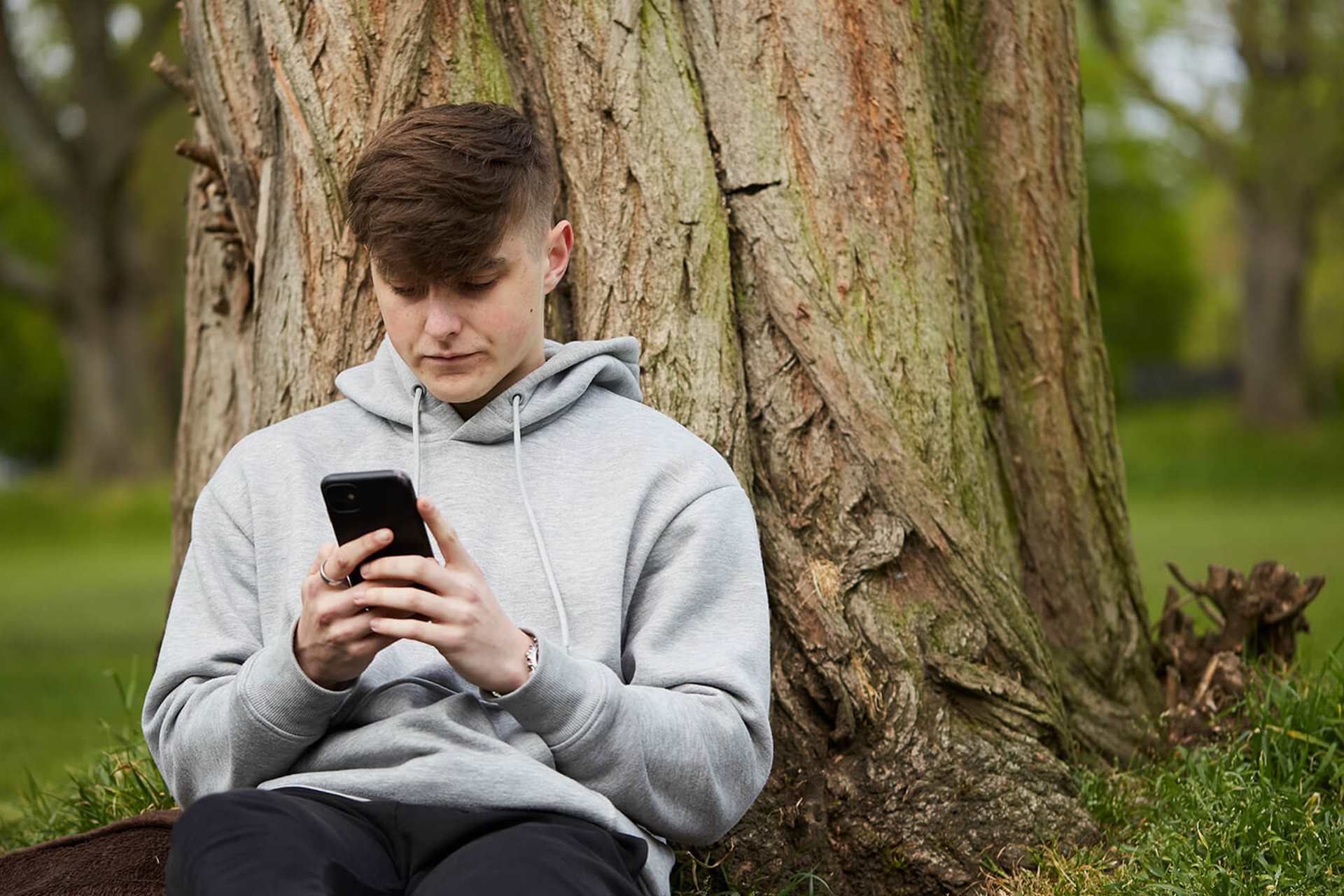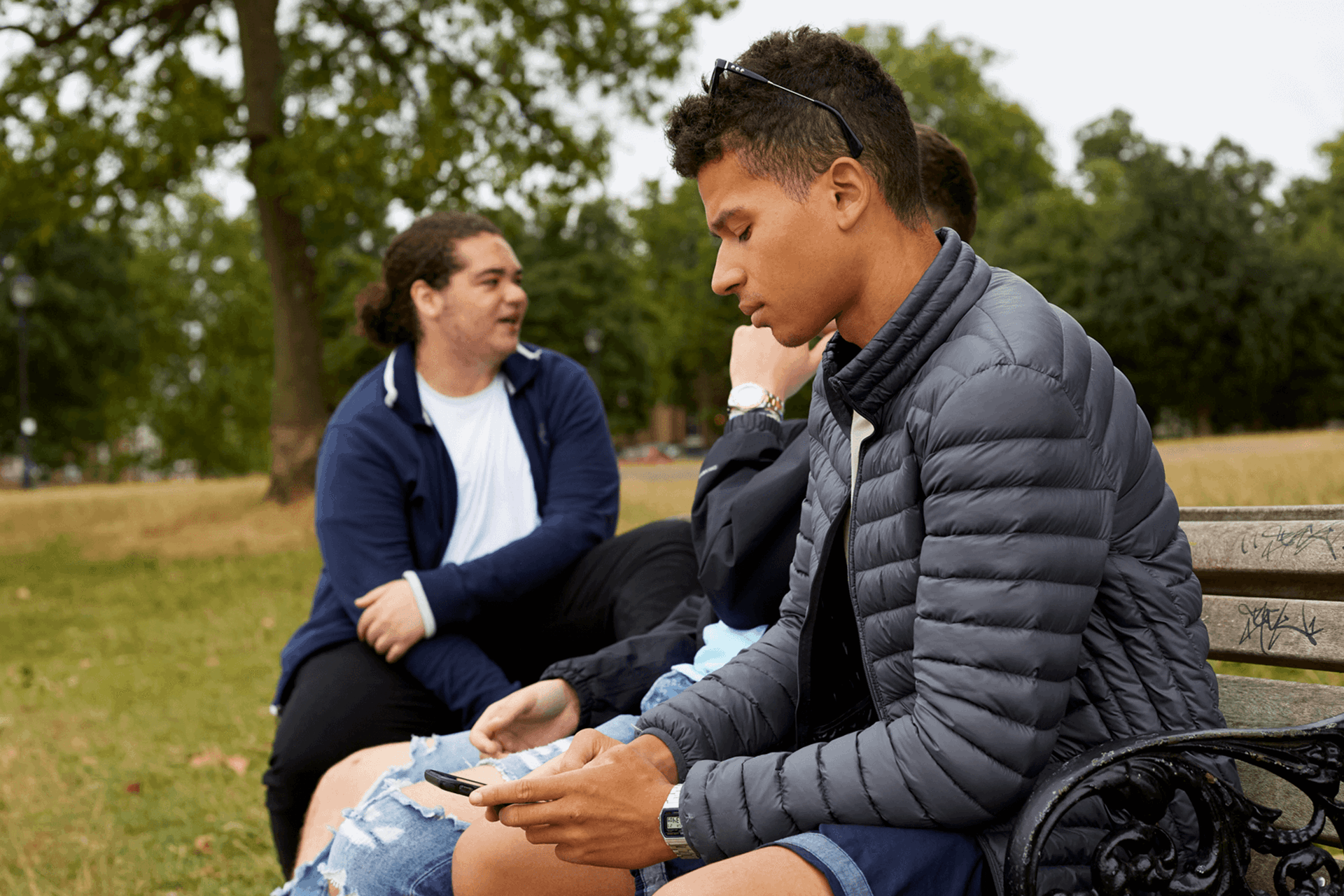Topics mentioned: borderline personality disorder, suicidal feelings
About: Laura shares her experience of borderline personality disorder (BPD) and the things she wishes people knew about this often misunderstood condition.
I have borderline personality disorder (BPD), a mental health condition that can cause you to experience rapid changes in emotion, often triggered by your relationships.
I was diagnosed with it in 2017, after being in psychiatric hospital for a while. When I first heard about BPD, I went online and printed out a load of information on it and highlighted almost the whole of each page. It suddenly made so much sense. All the things I hadn’t wanted to talk about, all the feelings that didn’t make sense to me, things I couldn’t put my finger on – they were all there on a few pages. Although the information said just 1.6% of us share this experience, it still made me feel so much less alone than I had.
When I first heard about BPD, I went online and printed out a load of information on it and highlighted almost the whole of each page. It suddenly made so much sense.
My experience of BPD
I felt ashamed and abnormal when I would feel certain things: such as feeling suicidal over seemingly trivial events or interactions. Some days, I didn’t feel real: believing that the emptiness of being so unwell had consumed all of me so much so that there wasn’t even really a true ‘me’ anymore. I desperately wished I could undo all of it; but every day was a drop deeper than the last, and it happened so suddenly.
I never spoke about the details of what I felt, and never thought I would. I worried about how it would look and how far people would drift from me, because if it didn’t even make sense to me, how could it make sense to anybody else?
I worried about how it would look and how far people would drift from me, because if it didn’t even make sense to me, how could it make sense to anybody else?
What I wish people knew about BPD
But overtime I have started to talk about how I feel, and there are certain things I want people to know about BPD.
- Often, the tiniest thing can feel like an enormous weight crashing down on you in a split second. These ‘tiny’ things, the things that other people might not notice, can feel devastating. But the overriding thing to remember is that it is no one’s fault that some things hurt more than they might for other people. It’s just important to communicate openly to interrupt the thoughts that might have begun spiralling for us.
- Things aren’t stable, or unstable, all the time. Feelings can be fleeting or last a long while; they can be distressing, or feelings of euphoria – about an event, a situation, a person. People with BPD might feel one thing so deeply, then with the slightest change or a split second, it can switch to the opposite, or disappear altogether. I have had very long periods of my life where I often forgot what it was like to feel the worst parts of my BPD. Understand that it is not a contained period of ‘illness’, but one that is ever-changing throughout life – and it won’t always be at its worst.
- People with BPD don’t want to be isolated in relationships with others, even if sometimes we do that ourselves. The first question that appears when you google ‘BPD relationships’ is ‘Can a person with BPD really love?’ We can. And while it’s important to acknowledge the pain that those around us might experience as a result of seeing a loved one experiencing mental illness (as is the case with the friends or family of anyone struggling with their mental health), it is not always that way. Some relationships can be harder for us, but they aren’t impossible. If you have BPD, you are capable of loving and being loved in return – and it won’t always be tumultuous.
- The final thing I want people to know is how important it is to be honest. I spent a really long time not talking about the things that hurt because I was afraid. If you have BPD, you aren’t alone in your thoughts or fears. There are people who understand and want to be there with you through it, no matter how ugly it can get. And for people who know someone with BPD, please be patient. Get support for yourself if you are finding it tricky and know that we never want to hurt the people around us or push them away. There is support out there, even if you feel so alone.
If you have BPD, you are capable of loving and being loved in return – and it won’t always be tumultuous.
I have gotten better over time, often through just understanding BPD itself and my triggers. It takes time, and patience, and sometimes lots of hurt, but the more you talk about the distressing feelings, the easier it becomes to process them and move on.
More information and advice
We have tips and advice to help you find the support you need. Take a look at our guides.
Where to get help
However you're feeling, there are people who can help you if you are struggling. Here are some services that can support you.
-
Childline
If you’re under 19 you can confidentially call, chat online or email about any problem big or small.
Sign up for a free Childline locker (real name or email address not needed) to use their free 1-2-1 counsellor chat and email support service.
Can provide a BSL interpreter if you are deaf or hearing-impaired.
Hosts online message boards where you can share your experiences, have fun and get support from other young people in similar situations.
- Opening times:
- 24/7
-
Calm Harm
A free app providing support and strategies to help you resist or manage the urge to self-harm.
Can be downloaded from Google Play or App Store.
-
NAPAC (the National Association for People Abused in Childhood)
Offers support to adult survivors of all types of childhood abuse, including physical, sexual, emotional abuse or neglect.
- Opening times:
- 10am - 4pm, Monday, Wednesdays & Fridays; 2pm - 9pm, Tuesdays & Thursdays
-
NHS 111
To get urgent mental health advice from the NHS, call 111 and select the mental health option. 111 will tell you where you can get help. They may also be able to put you through to a trained mental health professional over the phone.
111 can support anyone who is feeling unsafe, distressed or worried about their mental health. They can also give information and advice about what to do if you're worried about someone else.
If you would rather get help online, you can use 111 online.
- Opening times:
- 24/7
-
Samaritans
Whatever you're going through, you can contact the Samaritans for support. N.B. This is a listening service and does not offer advice or intervention.
- Opening times:
- 24/7






